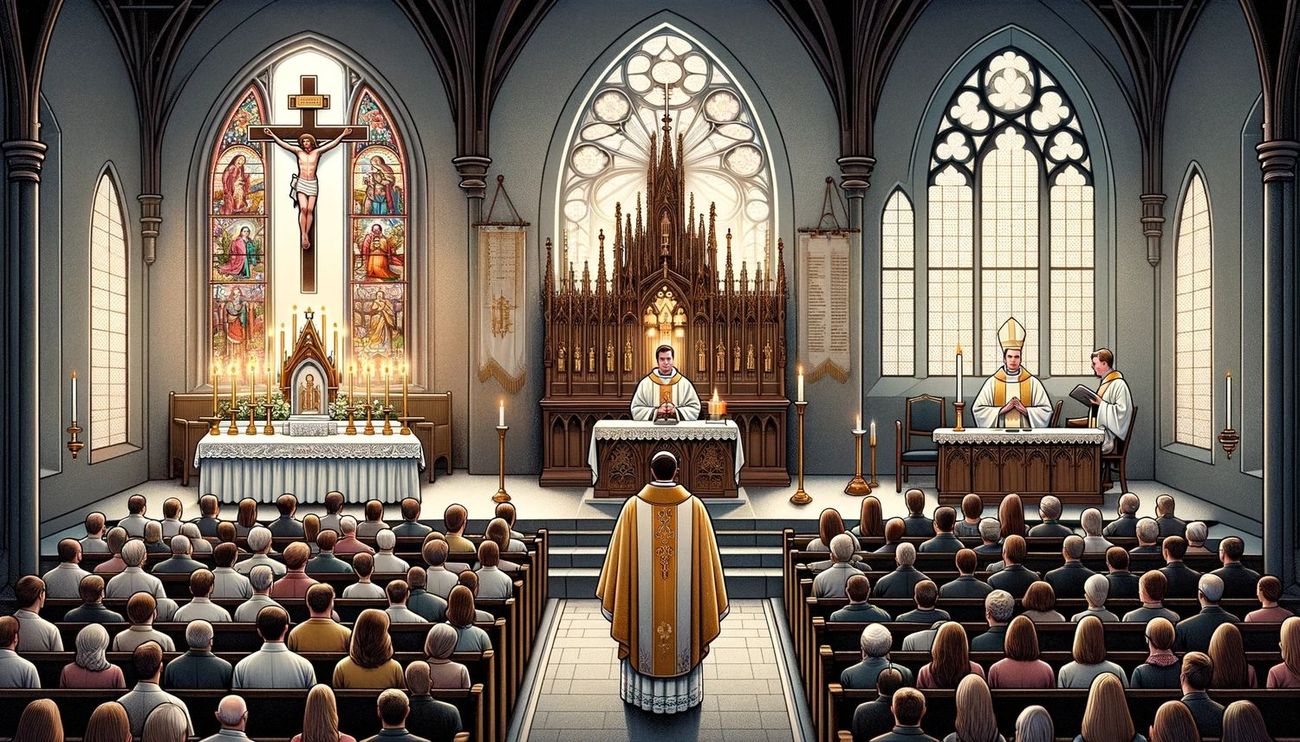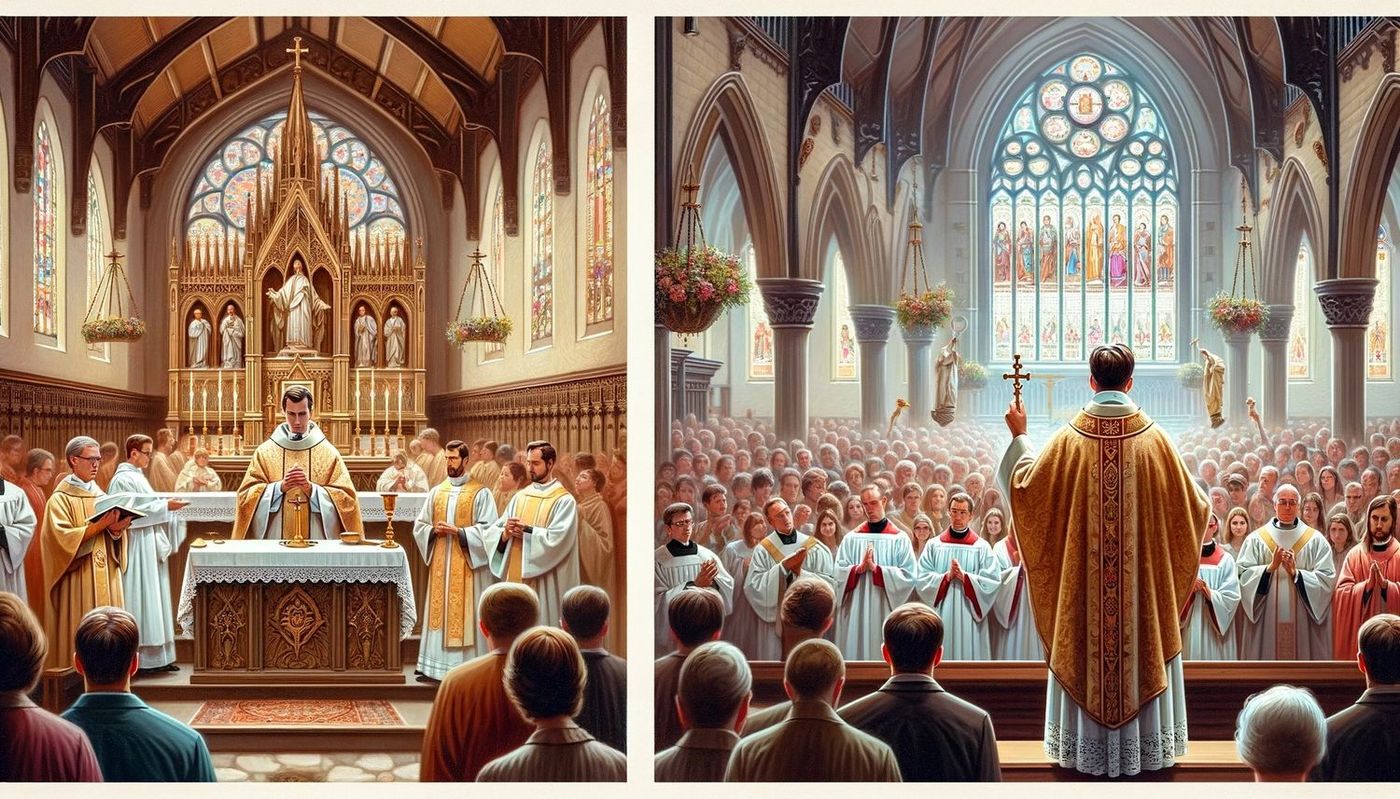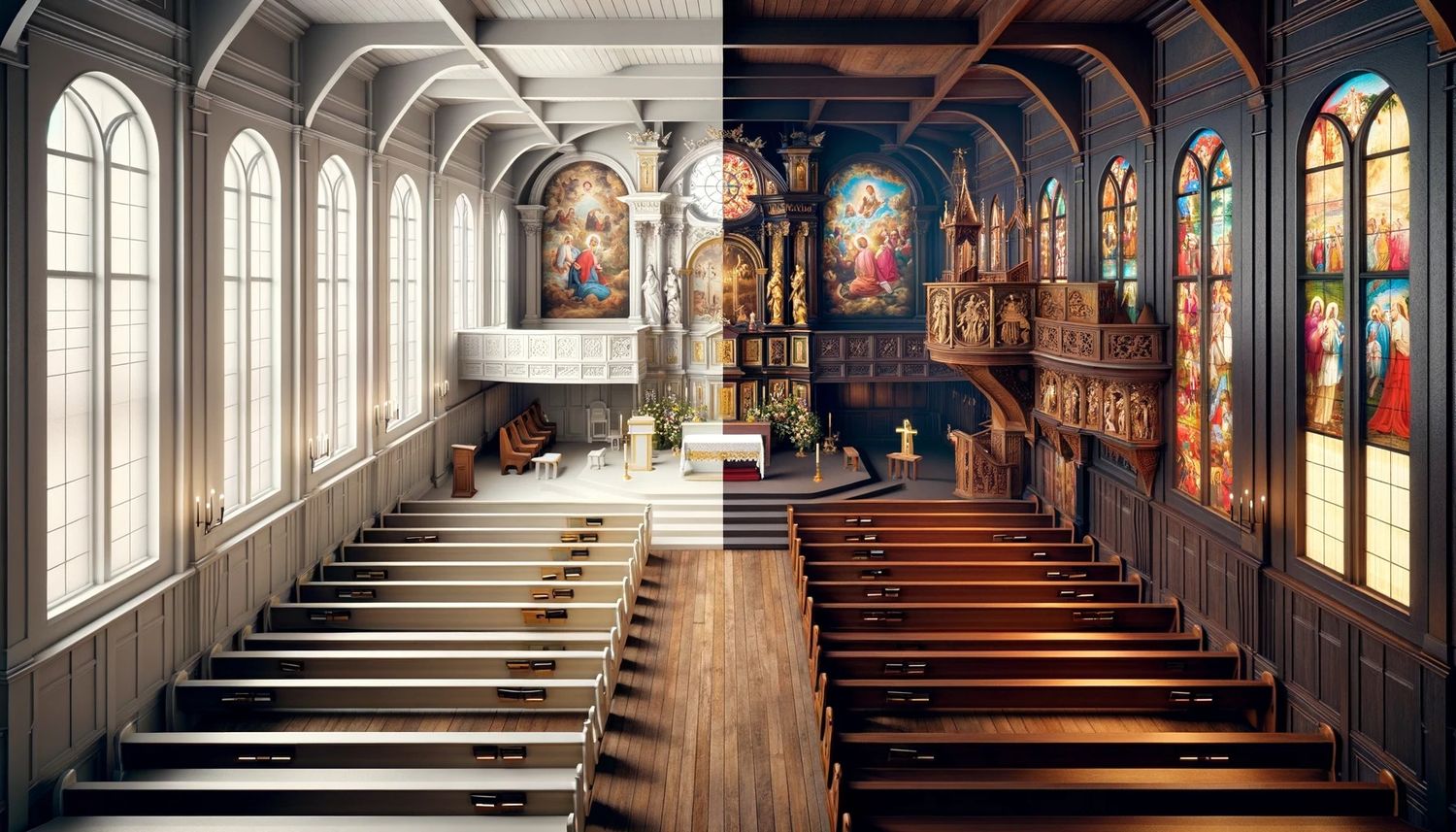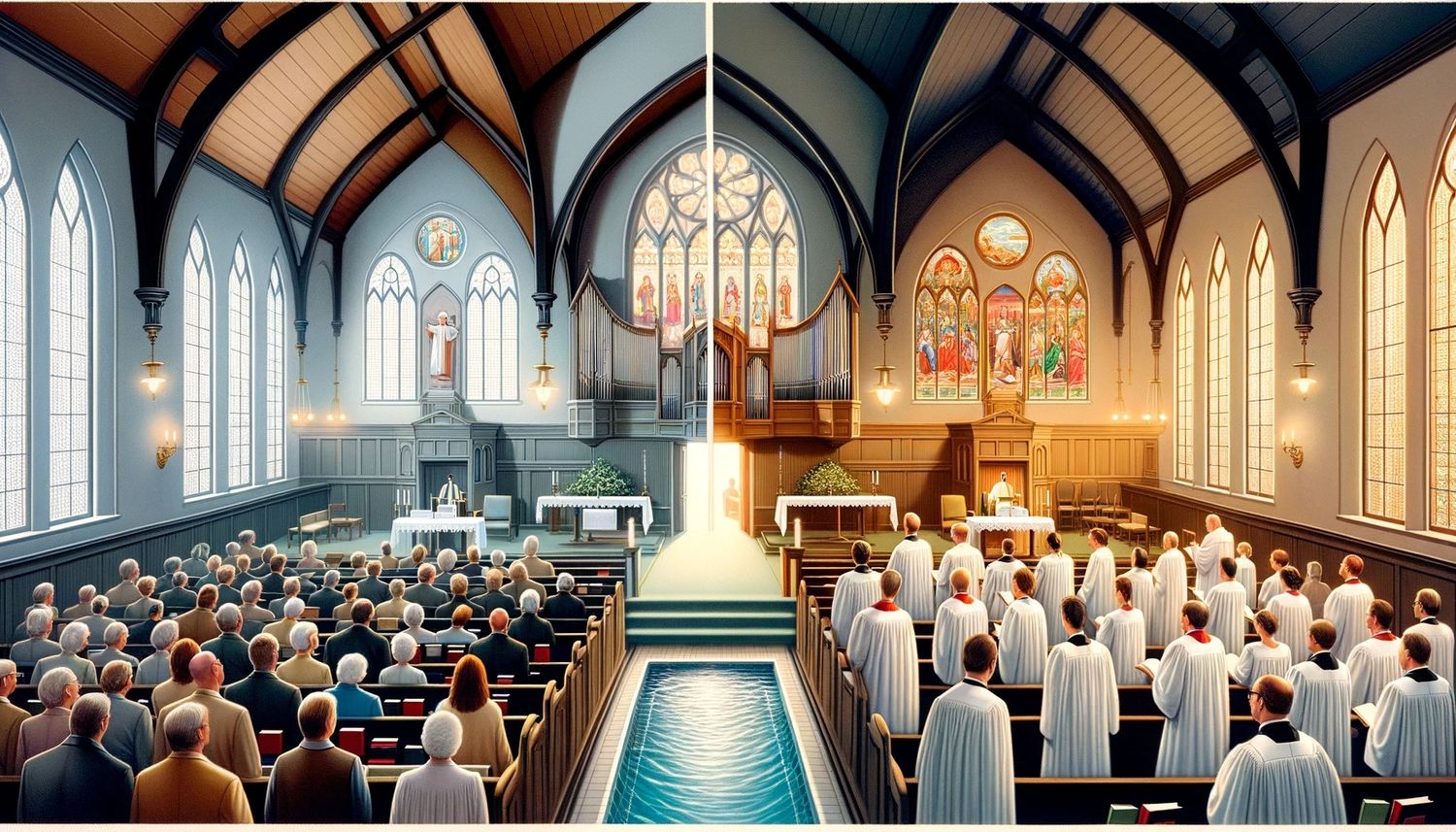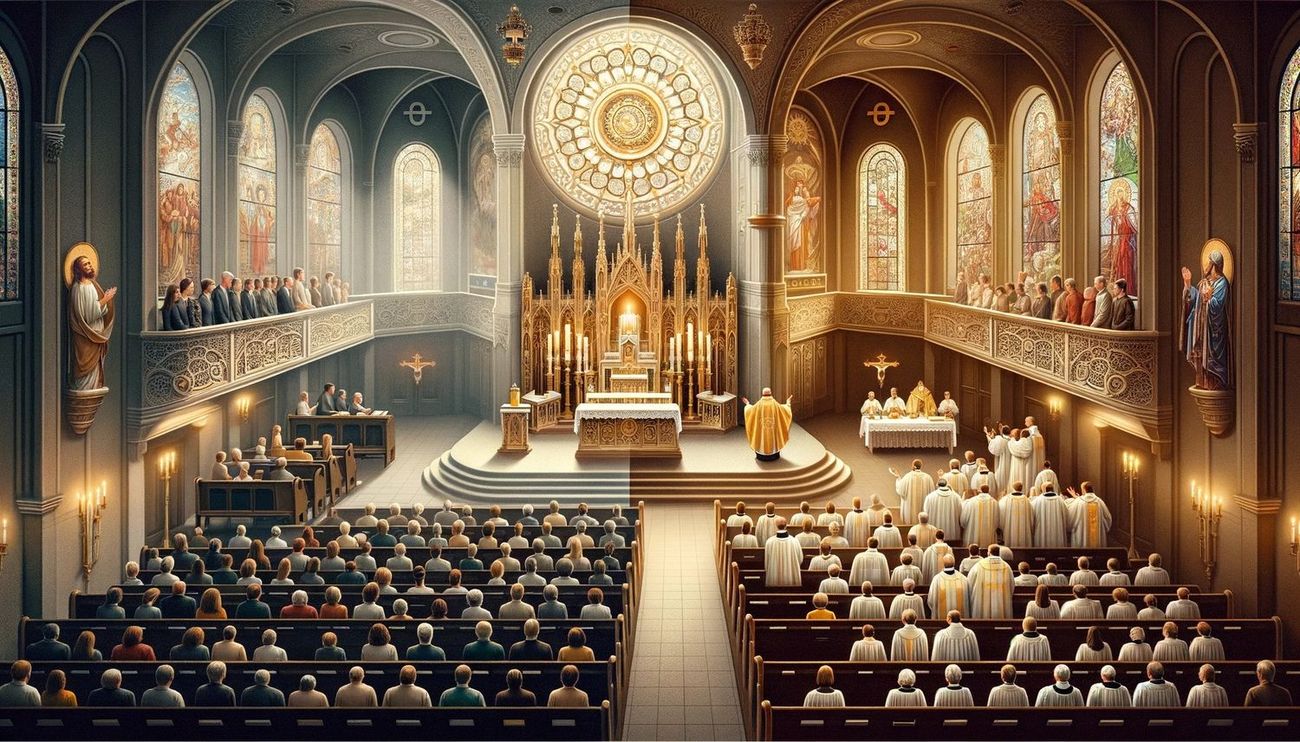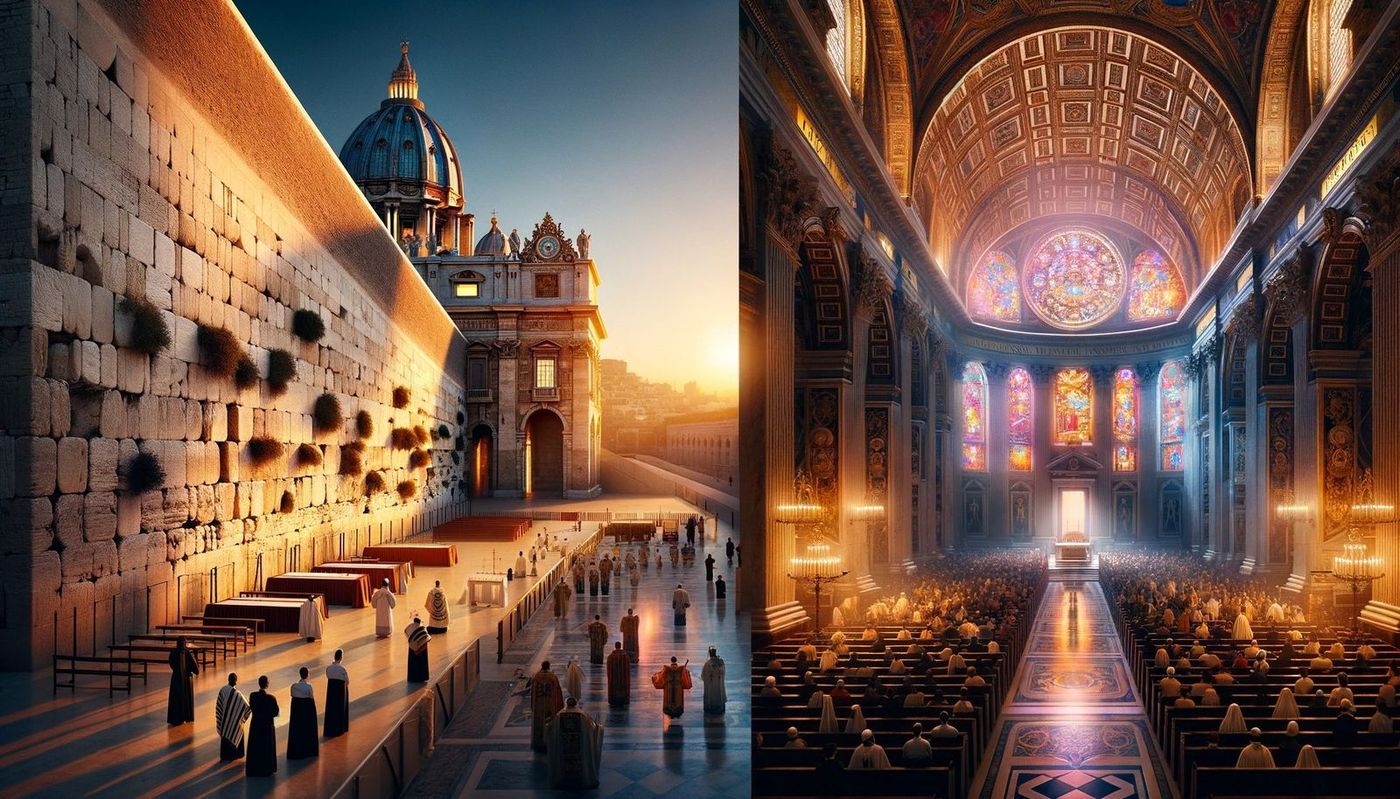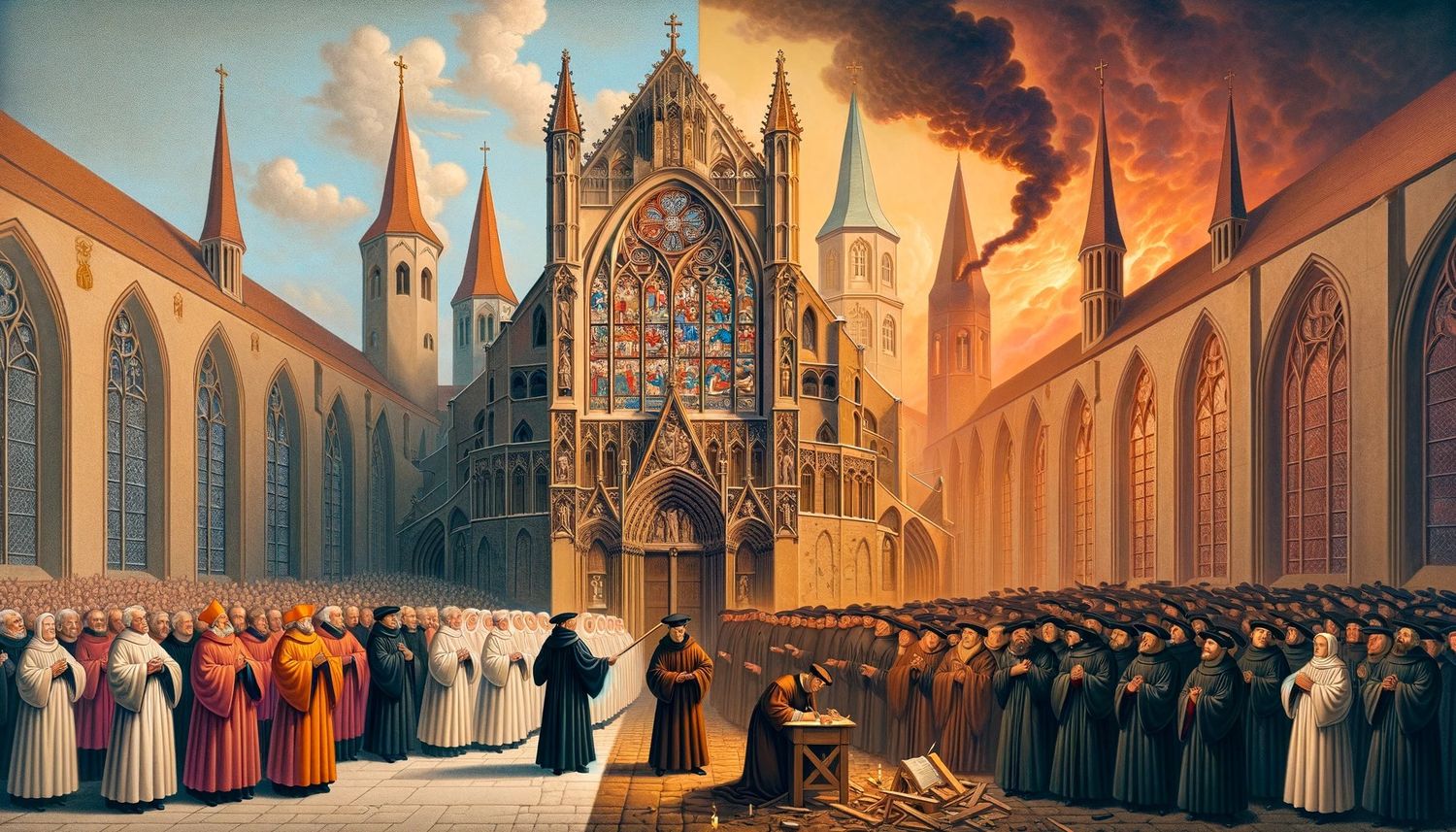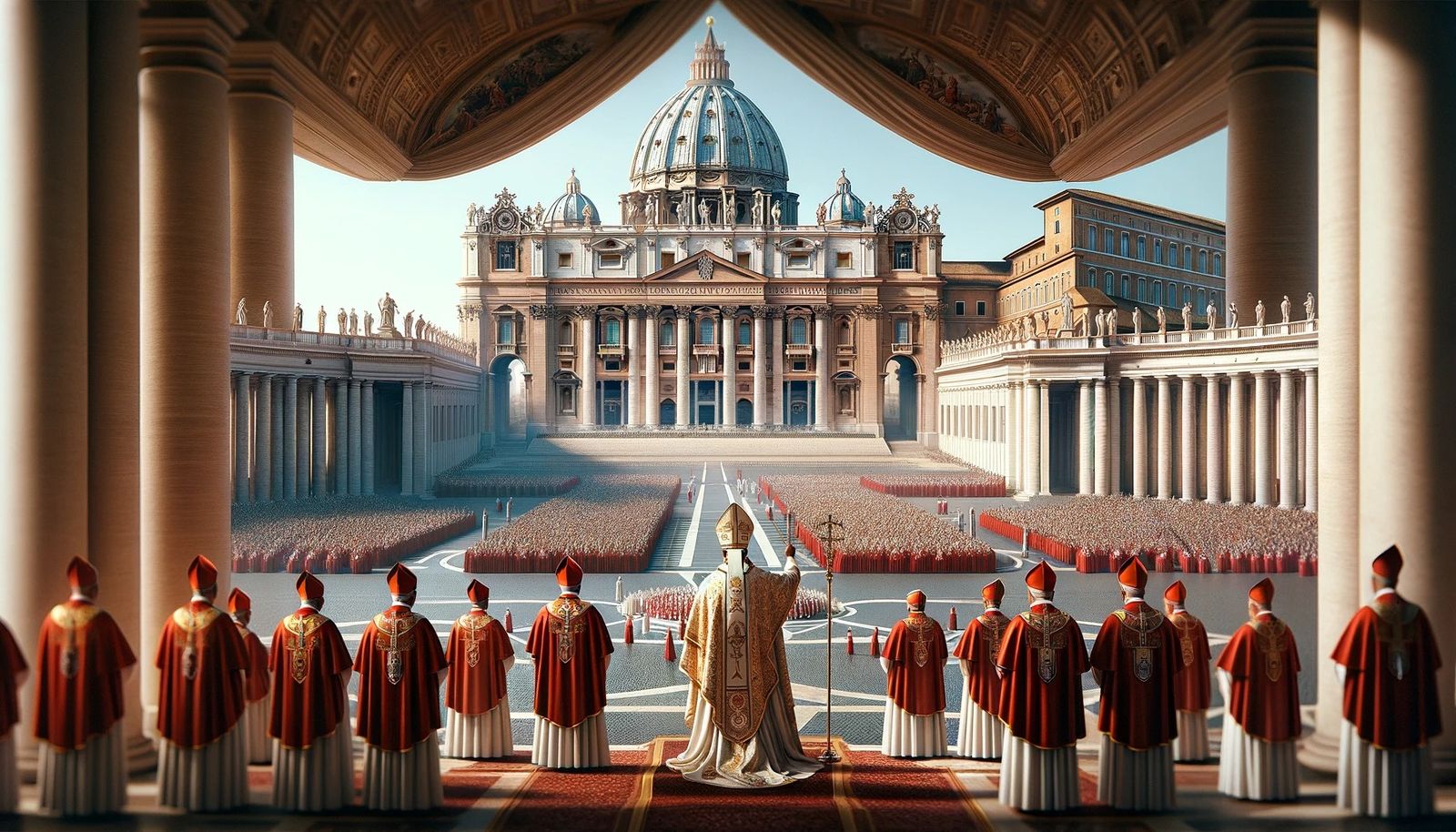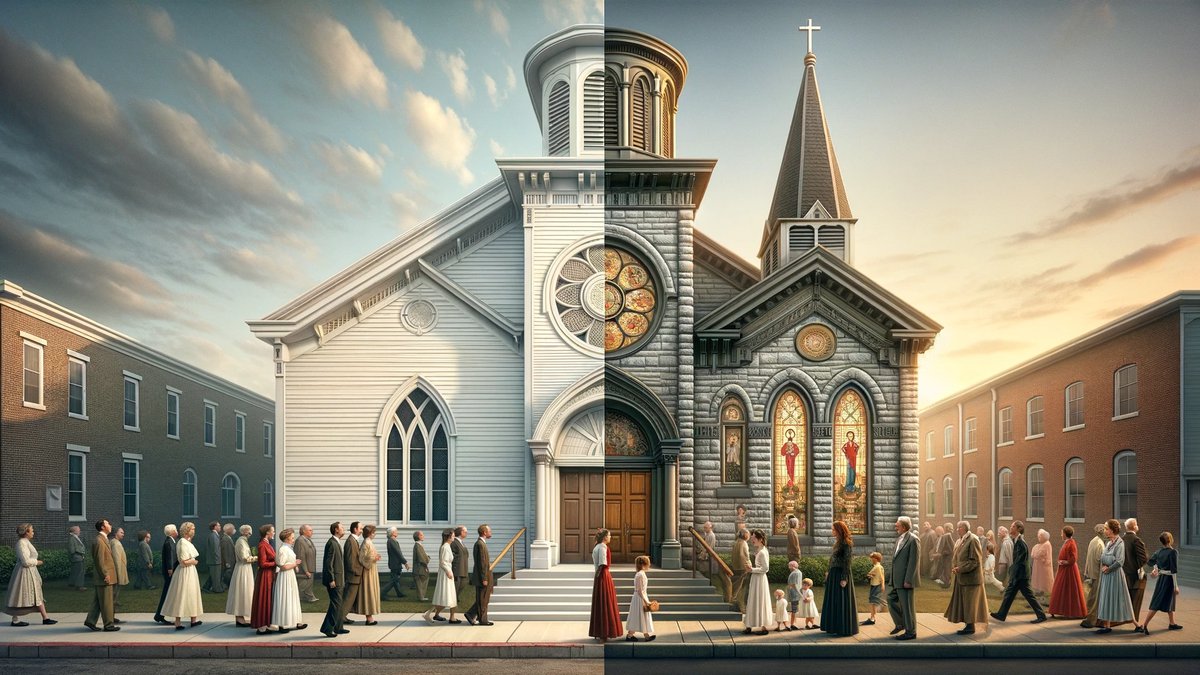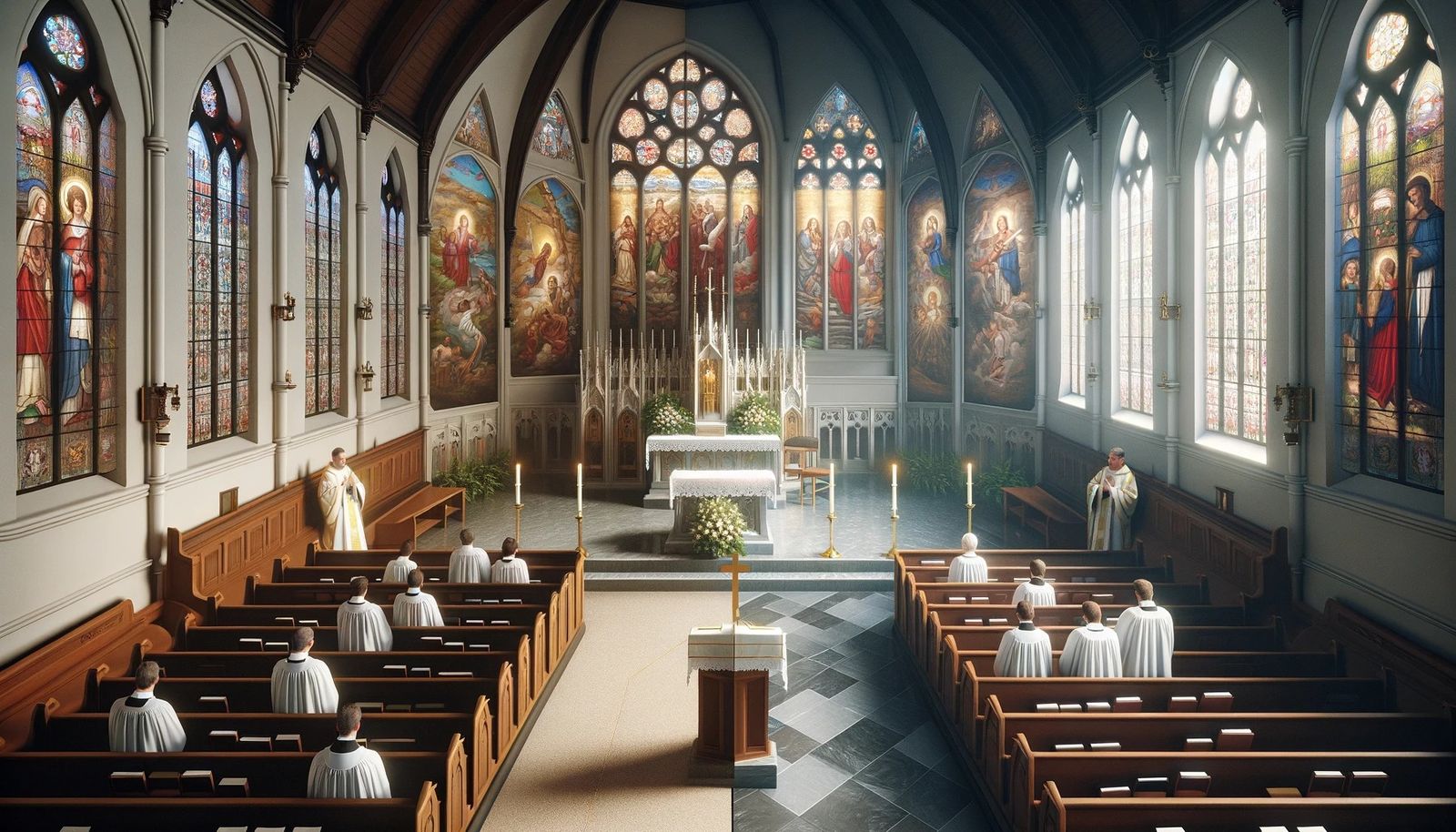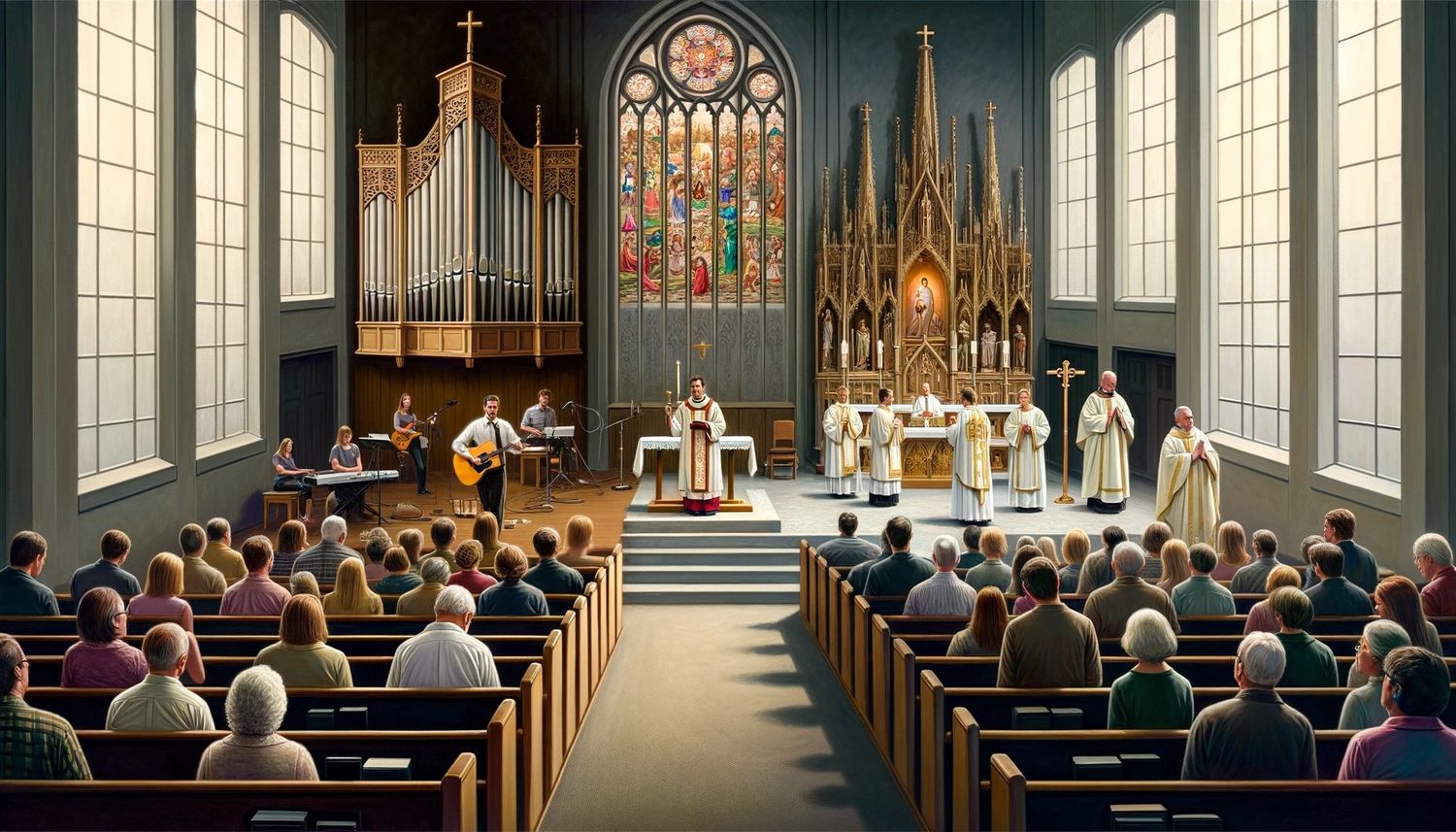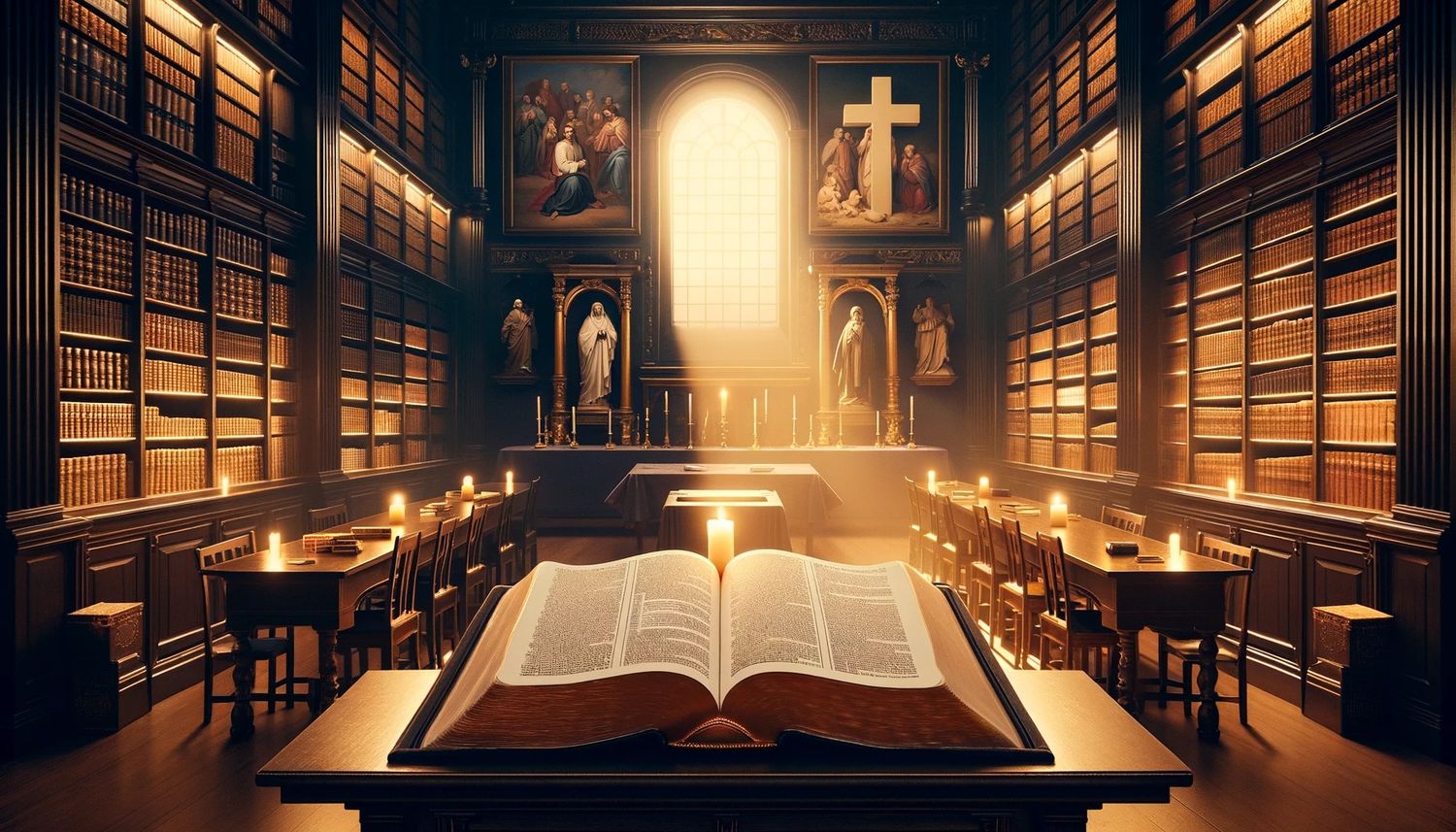Home>Theology and Spirituality>What Makes Catholicism Different From Christianity
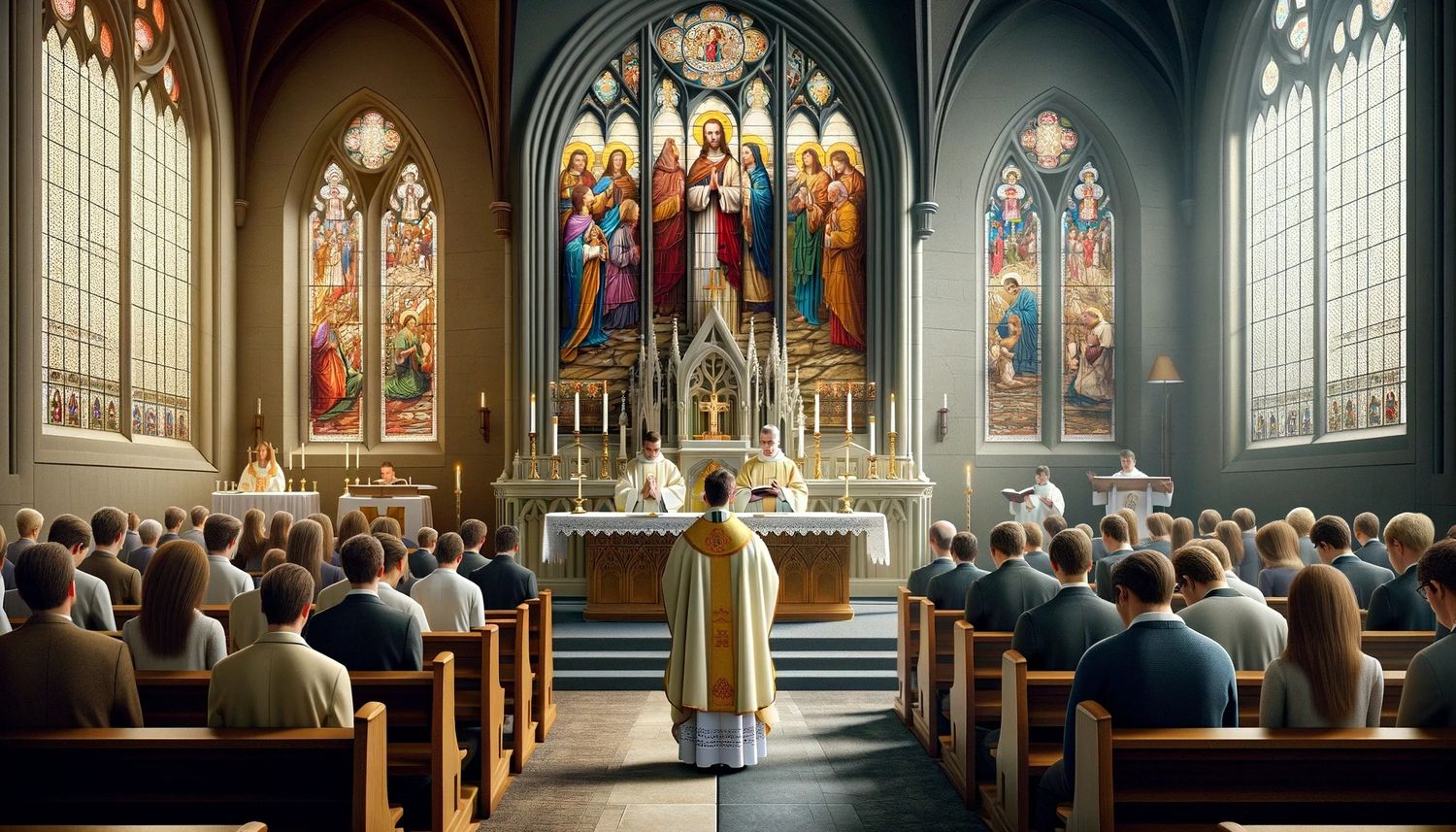

Theology and Spirituality
What Makes Catholicism Different From Christianity
Published: February 17, 2024
Jason DeRose, Managing Editor at Christian.net, uses his expertise in religion and journalism to deepen understanding of faith's societal impacts. His editorial leadership, coupled with a strong academic background, enriches the platform’s diverse content, earning him recognition in both journalism and religious circles.
Discover the unique theological and spiritual aspects that set Catholicism apart from other Christian denominations. Explore the distinct beliefs and practices of Catholic theology and spirituality.
(Many of the links in this article redirect to a specific reviewed product. Your purchase of these products through affiliate links helps to generate commission for Christian.net, at no extra cost. Learn more)
Table of Contents
Introduction
Catholicism and Christianity are often used interchangeably, leading to confusion about their differences. While Catholicism is a subset of Christianity, it possesses distinct beliefs, practices, and traditions that set it apart. Understanding these differences is essential for appreciating the rich tapestry of Christian faith and spirituality.
In this article, we will delve into the unique aspects of Catholicism that differentiate it from other Christian denominations. From its historical roots to its theological doctrines and spiritual practices, we will explore the facets that make Catholicism a distinctive branch within the broader Christian tradition. By shedding light on these differences, we aim to foster a deeper understanding of the diverse expressions of Christian faith and the profound impact they have had on individuals and societies throughout history.
Read more: Differences Of Catholicism And Christianity
Historical Background
The historical roots of Catholicism can be traced back to the early Christian Church established by Jesus Christ and his apostles. As Christianity spread across the Roman Empire, it encountered diverse cultures and theological interpretations, leading to the development of distinct Christian traditions. The term "Catholic" itself derives from the Greek word "katholikos," meaning "universal," reflecting the Church's mission to encompass all people and nations.
One pivotal moment in the history of Catholicism was the Great Schism of 1054, which resulted in the division between the Western (Catholic) and Eastern (Orthodox) branches of Christianity. This schism marked a significant divergence in theological, liturgical, and ecclesiastical practices, shaping the distinct identity of the Catholic Church.
The Protestant Reformation in the 16th century further influenced the historical trajectory of Catholicism. The reformers, such as Martin Luther and John Calvin, challenged certain doctrines and practices of the Catholic Church, leading to the emergence of Protestant denominations. This period of religious upheaval prompted the Catholic Church to engage in its own internal reforms, known as the Counter-Reformation, which revitalized aspects of Catholic theology, spirituality, and mission.
The historical background of Catholicism is also characterized by the enduring influence of the papacy. The Bishop of Rome, known as the Pope, has been a central figure in shaping the doctrinal and administrative dimensions of the Catholic Church. The papacy's historical role as a unifying authority and spiritual leader has contributed to the distinctiveness of Catholicism within the broader Christian landscape.
Furthermore, the missionary endeavors of Catholic explorers and evangelists have left an indelible mark on global history, as Catholicism became intertwined with the cultural and social fabric of diverse regions, from Europe to the Americas, Africa, Asia, and beyond. This historical diffusion of Catholicism has engendered a rich tapestry of traditions, rituals, and devotional practices that reflect the dynamic interaction between faith and culture.
In summary, the historical background of Catholicism is characterized by its deep roots in early Christianity, the schisms and reformations that shaped its identity, the enduring influence of the papacy, and its global missionary expansion. These historical dynamics have contributed to the distinctiveness of Catholicism within the broader spectrum of Christian traditions, shaping its beliefs, practices, and spiritual ethos over the centuries.
Beliefs and Practices
At the core of Catholicism are foundational beliefs and practices that distinguish it within the Christian tradition. These beliefs are rooted in sacred scripture, sacred tradition, and the magisterium, which collectively form the authoritative sources of Catholic doctrine and theology.
Sacred Scripture and Tradition
Catholicism upholds the belief in the divine inspiration and authority of both the Old and New Testaments of the Bible. The interpretation of scripture is guided by the teachings of the Church, ensuring doctrinal coherence and fidelity to the apostolic faith. In addition to scripture, Catholicism places significant emphasis on sacred tradition, encompassing the teachings, rituals, and theological insights passed down through the centuries. This dual reliance on scripture and tradition underscores the rich tapestry of Catholic beliefs and practices, providing a holistic framework for understanding the Christian faith.
The Sacraments
Central to Catholic belief and practice are the seven sacraments: Baptism, Confirmation, Eucharist, Reconciliation, Anointing of the Sick, Holy Orders, and Matrimony. These sacraments are regarded as efficacious signs of God's grace, conveying spiritual blessings and strengthening the faith of the faithful. The sacramental life of the Church serves as a profound expression of divine presence and transformative power, shaping the spiritual journey of individuals within the Catholic community.
Liturgical Worship
Catholic worship is characterized by its rich liturgical tradition, encompassing solemn rituals, sacred music, and the celebration of the Eucharist. The Mass, the central act of Catholic worship, is a reverent commemoration of Christ's sacrifice and a communal expression of faith and unity. The liturgical calendar, marked by seasons such as Advent, Lent, and Easter, structures the rhythm of Catholic worship, inviting believers to engage in spiritual reflection and communal prayer throughout the liturgical year.
Devotion to Mary and the Saints
Catholic devotion extends to Mary, the Mother of Jesus, and the communion of saints, venerating their exemplary lives of faith and their intercessory role in the spiritual journey of believers. The veneration of Mary, often expressed through prayers such as the Hail Mary and devotional practices like the Rosary, reflects the profound reverence for her maternal role in the Christian narrative. Similarly, the veneration of saints as intercessors and role models embodies the communal aspect of Catholic spirituality, connecting believers across time and space through a shared communion of faith.
In essence, the beliefs and practices of Catholicism are characterized by a deep reverence for sacred scripture and tradition, the sacramental life of the Church, rich liturgical worship, and devotion to Mary and the saints. These foundational elements shape the spiritual identity of Catholicism, fostering a vibrant tapestry of faith, ritual, and communal devotion within the broader Christian tradition.
Authority and Leadership
The structure of authority and leadership within Catholicism is a defining feature that sets it apart from other Christian denominations. At the apex of this hierarchical structure is the Bishop of Rome, commonly known as the Pope, who serves as the spiritual leader and supreme pontiff of the Catholic Church. The papal office is regarded as the successor to the apostle Peter, to whom Jesus entrusted the keys of the kingdom, symbolizing the authority to guide and govern the Church.
Beneath the papacy, the College of Bishops, in communion with the Pope, collectively exercises the teaching authority and pastoral care of the Church. This collegial relationship between the Pope and the bishops reflects the emphasis on unity and shared responsibility within the episcopal leadership of Catholicism. The bishops, as successors to the apostles, oversee dioceses and regions, shepherding the faithful and upholding the doctrinal and moral teachings of the Church.
Furthermore, the ordained ministry, comprising deacons, priests, and bishops, plays a vital role in the sacramental life and pastoral governance of the Church. The sacrament of Holy Orders confers upon these individuals the authority to preach the Gospel, administer the sacraments, and provide spiritual guidance to the faithful. The hierarchical structure of ordained ministry underscores the continuity of apostolic succession and the stewardship of spiritual authority within the Catholic tradition.
In addition to the ordained ministry, the role of religious orders and congregations enriches the diverse expressions of Catholic leadership. Religious men and women, through their vows of poverty, chastity, and obedience, contribute to the spiritual, educational, and charitable missions of the Church, embodying distinct charisms and spiritual traditions that complement the broader ecclesial landscape.
The authority and leadership structure of Catholicism, characterized by the papacy, the College of Bishops, the ordained ministry, and religious orders, reflects a dynamic interplay of hierarchical governance, communal discernment, and diverse forms of spiritual service. This multifaceted leadership framework underscores the rich tapestry of roles and responsibilities within the Catholic Church, shaping its mission to proclaim the Gospel, foster unity, and serve the spiritual needs of believers worldwide.
Sacraments
Central to Catholic belief and practice are the seven sacraments: Baptism, Confirmation, Eucharist, Reconciliation, Anointing of the Sick, Holy Orders, and Matrimony. These sacraments are regarded as efficacious signs of God's grace, conveying spiritual blessings and strengthening the faith of the faithful. Each sacrament holds profound significance within the life of a Catholic believer, marking key milestones in their spiritual journey and fostering a deeper connection to the divine presence.
Baptism, the sacrament of initiation, serves as the entry point into the Christian community, cleansing the individual of original sin and initiating them into the life of faith. Through the pouring of water and the invocation of the Holy Trinity, baptism symbolizes rebirth and spiritual regeneration, marking the beginning of a lifelong journey of discipleship.
Confirmation, often referred to as the sacrament of strengthening, follows baptism and is a rite in which the individual receives the gifts of the Holy Spirit, empowering them to bear witness to the Christian faith. The anointing with chrism oil by a bishop signifies the sealing of the Holy Spirit and the deepening of the recipient's commitment to the Church and its mission.
The Eucharist, also known as the Holy Communion, holds a central place in Catholic worship and spirituality. In this sacrament, the bread and wine are consecrated during the Mass, transforming into the body and blood of Christ. Through the reception of the Eucharist, Catholics partake in the sacred meal that unites them with Christ and with one another, nourishing their souls and fostering spiritual communion.
Reconciliation, or the sacrament of penance, offers the opportunity for repentance and forgiveness, allowing individuals to reconcile with God and the Church. Through the confession of sins and the absolution granted by a priest, Catholics experience the liberating grace of God's mercy, renewing their spiritual journey and restoring their relationship with the divine.
The sacrament of Anointing of the Sick provides spiritual strength and healing to those facing illness or the frailty of old age. Through the anointing with oil and the prayers of the faith community, the recipient receives the grace to face their condition with courage and hope, finding solace in the compassionate presence of Christ.
Holy Orders, the sacrament through which bishops, priests, and deacons are ordained, confers upon individuals the sacred duties and responsibilities of pastoral ministry and spiritual leadership. This sacrament underscores the continuity of apostolic succession and the call to serve the Church and its faithful with humility and dedication.
Matrimony, the sacrament of marriage, sanctifies the union between a man and a woman, inviting them to share in God's love and to build a life of mutual support and fidelity. Through the exchange of vows and the blessing of their union, the couple enters into a covenant of love, reflecting the sacred bond between Christ and the Church.
In essence, the sacraments form the spiritual backbone of Catholic belief and practice, embodying the transformative power of God's grace and the communal dimension of the Christian journey. Each sacrament encapsulates profound spiritual truths and invites believers to encounter the divine presence in tangible and sacramental ways, enriching their lives with the richness of God's love and mercy.
Mary and the Saints
In Catholicism, devotion to Mary, the Mother of Jesus, and veneration of the saints hold a significant place in the spiritual life of believers. Mary is revered as the Theotokos, the Mother of God, and her pivotal role in the incarnation of Christ underscores her profound significance in the Christian narrative. The Catholic Church upholds Mary's exemplary virtues, emphasizing her immaculate conception, her fiat to the angel Gabriel, and her unwavering presence at the foot of the cross during Jesus' crucifixion. Mary's maternal intercession and her compassionate presence in the lives of believers are central to Catholic devotion, fostering a deep sense of spiritual intimacy and maternal protection.
The veneration of saints, encompassing the martyrs, theologians, and exemplary followers of Christ, reflects the communal aspect of Catholic spirituality. Saints serve as inspirational models of faith, embodying the transformative power of God's grace in their lives. The communion of saints, as articulated in the Apostles' Creed, underscores the unity of the Church across time and space, connecting believers with the enduring legacy of those who have borne witness to the Gospel. Catholics invoke the intercession of saints, seeking their prayers and guidance in times of need, and venerating their relics and sacred images as tangible reminders of their sanctity.
The practice of praying the Rosary, a devotional prayer centered on the mysteries of Christ's life, often intertwines with the veneration of Mary. Through the recitation of the Hail Mary and the contemplation of the joyful, luminous, sorrowful, and glorious mysteries, Catholics enter into a profound spiritual journey, guided by Mary's maternal care and the salvific work of her Son. The Rosary serves as a meditative pathway to encounter the mysteries of faith and to seek the intercession of the Blessed Mother in the complexities of daily life.
The veneration of Mary and the saints enriches the spiritual tapestry of Catholicism, fostering a sense of communion with the heavenly host and the enduring legacy of faith. This devotional aspect of Catholic spirituality underscores the interconnectedness of the Church, both on earth and in heaven, and the profound impact of the saints' lives as witnesses to the transformative power of God's grace. Through the veneration of Mary and the saints, Catholics find inspiration, solace, and a deep sense of spiritual kinship, enriching their journey of faith within the broader Christian tradition.
Conclusion
In conclusion, the distinctiveness of Catholicism within the broader Christian tradition is evident in its historical roots, beliefs, practices, authority structure, sacramental life, and devotion to Mary and the saints. From its early origins in the apostolic era to its global missionary expansion, Catholicism has evolved as a multifaceted tapestry of faith, spirituality, and communal devotion. The historical schisms and reformations, coupled with the enduring influence of the papacy, have shaped the unique identity of Catholicism, contributing to its rich theological heritage and ecclesial structure.
The foundational beliefs and practices of Catholicism, rooted in sacred scripture, tradition, and the sacraments, underscore its commitment to a holistic and sacramental understanding of the Christian faith. The emphasis on liturgical worship, communal prayer, and the sacramental life of the Church reflects the profound spiritual journey of believers within the Catholic community. Furthermore, the hierarchical structure of authority and leadership, centered on the papacy, the College of Bishops, and the ordained ministry, highlights the dynamic interplay of governance, pastoral care, and diverse forms of spiritual service.
The veneration of Mary, the Mother of Jesus, and the communion of saints embodies the communal aspect of Catholic spirituality, fostering a sense of spiritual kinship and intercession across the earthly and heavenly realms. Through the devotional practices of the Rosary, the invocation of saints, and the recognition of Mary's maternal role, Catholics find inspiration and solace in the enduring legacy of faith exemplified by these revered figures.
In essence, the distinctiveness of Catholicism within Christianity lies in its historical continuity, theological richness, sacramental vitality, and communal devotion. By embracing the multifaceted dimensions of Catholic faith and spirituality, believers are invited to encounter the transformative power of God's grace, to participate in the communal life of the Church, and to draw inspiration from the enduring witness of Mary and the saints. This rich tapestry of beliefs, practices, and traditions underscores the profound impact of Catholicism on individuals, communities, and the broader Christian narrative, shaping a diverse and vibrant expression of Christian faith throughout history and into the future.
